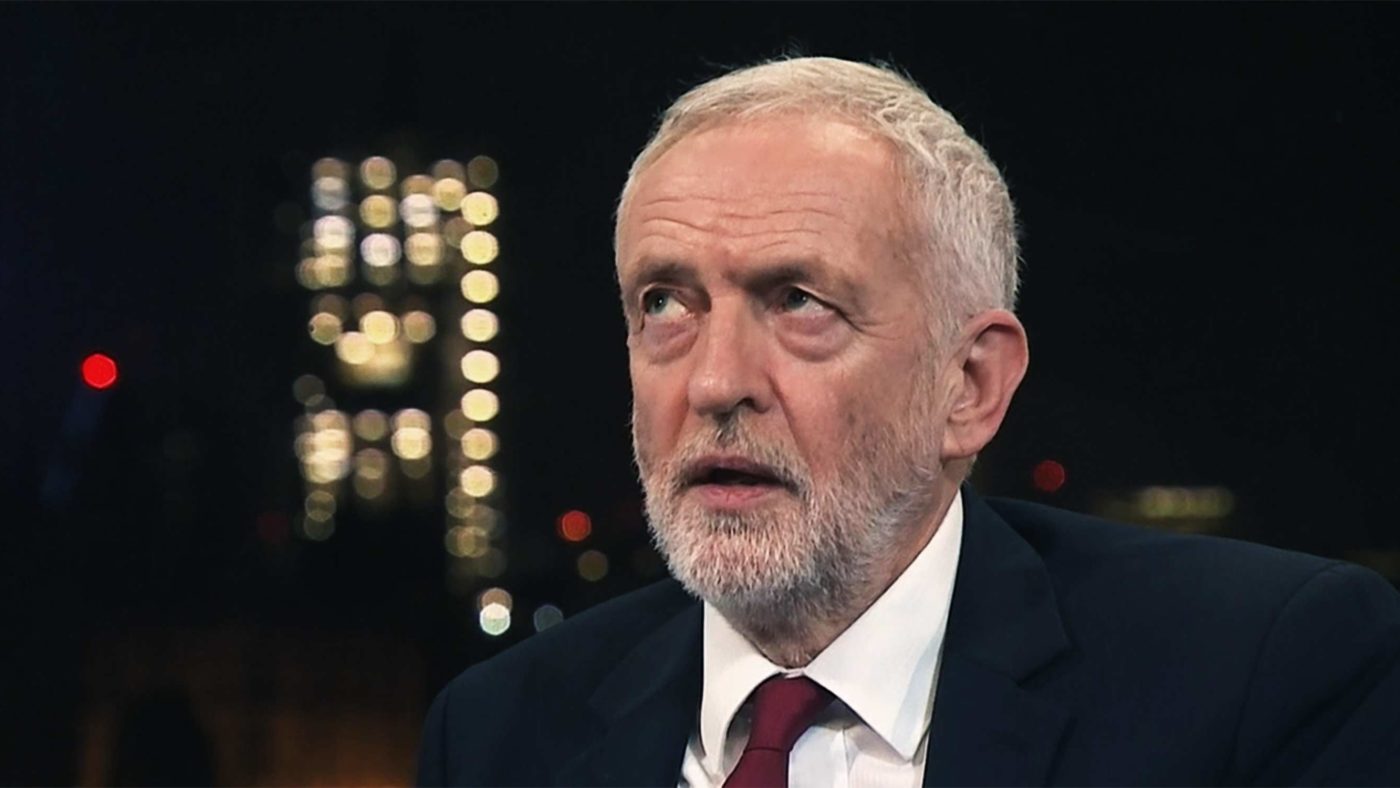Where does one start with Jeremy Corbyn’s interview with Andrew Neil? (You can read a full transcript here)
At times it felt as though the Labour leader was competing with Prince Andrew to produce the most toe-curlingly awful interview of 2019. Even in this election of near constant breathless news and barmy content, this most traditional of formats stood out. He may have done pretty well confronted with the studio audiences of ITV and BBC1, but faced with the Paisley Pitbull, Corbyn turned from impassioned campaigner to grouchy, eye-rolling curmudgeon.
The top line, of course, was his refusal to apologise for anti-Semitism, which was splashed across all but a handful of today’s papers (cue ‘MSM conspiracy’ blather from his most loyal acolytes). That he could not bring himself to say sorry is obviously a ghastly state of affairs for a man who could quite well become our Prime Minister in a few weeks’ time. At the same time, it’s hard to say it was especially surprising, given his track record of vacillation and indifference on this issue.
Much more disturbing was his bizarre response to a question about whether “Rothschild’s Zionists run Israel and world governments” is anti-Semitic. Rather than simply saying ‘Yes’, Corbyn began his answer with: “In the Chakrabarti Report we asked that people did not use comparisons about conspiracies…in the belief of Shami, and I support her on this in that report, that can be constructed as being an anti-Semitic statement”. I would be deeply curious to hear the instances in which Rothschilds Zionists running world governments was not an anti-Semitic statement – perhaps Corbyn has a few examples from all the investigations his party have been undertaking?
Though not as morally appalling, equally striking was how totally unprepared Corbyn was for simple questions about Labour’s programme for government. He’s a politician who prefers platitudinous moral statements about “grotesque inequality” to the nitty-gritty detail of policymaking. When pressed on the latter, he tends to revert to the former. That’s fine up to a point, but if you are offering to transform the way our economy works, you really ought to know the economic implications of doing so.
Take nationalisation. When asked how Labour would pay for taking swathes of industry into public ownership, Corbyn declated that: “For nationalisation you don’t borrow. What you do is change share ownership for government bonds and it becomes an investment.” As George Maggs explains on CapX today, that is a complete fantasy. Indeed, two major estimates so far put the total cost of Labour’s nationalisation at approaching £200bn. That Corbyn can just wish away that kind of money as somehow “not borrowing” means he’s either duplicitous or totally ignorant of how the public finances work. Neither is especially comforting.
He was also surprisingly hazy on taxing the rich. Asked at one point about the share of tax paid by the top 5%, Corbyn replied that “they pay a top rate of about 45-50%”. Not only was this an answer to a different question, but it inadvertently showed that our would-be Prime Minister isn’t quite sure what the top rate of income tax is. If he’s asking the rich “to pay a bit more” he should surely know how much they are paying at the moment.
More important than this slip was the total lack of clarity on where Labour would find £58bn to compensate the WASPI women (a policy brilliantly torn to shreds by Oliver Kamm on Monday). After another bout of prevarication and impatient interrogation from his host, Mr Corbyn eventually replied: “We will do it by paying for it from government reserves and if necessary, – ‘cause it’s not all going to be paid in one year – we will have to borrow in the long term.” Given that Mr Corbyn himself then admitted the government reserves are “nowhere near” the £58bn required, that means a heck of a lot more borrowing.
Even the most loyal Corbyn supporter would struggle to say their man came out of the encounter anything other than bloodied and bruised. This was more than just a bad performance, though. It was the performance of a politician who doesn’t understand his own policies, let alone justify them.
If there’s any consolation for the Corbynites, it’s that Boris Johnson will (probably) have to face Andrew Neil next week. If yesterday night was anything to go by, he better come prepared.
Click here to subscribe to our daily briefing – the best pieces from CapX and across the web.
CapX depends on the generosity of its readers. If you value what we do, please consider making a donation.


